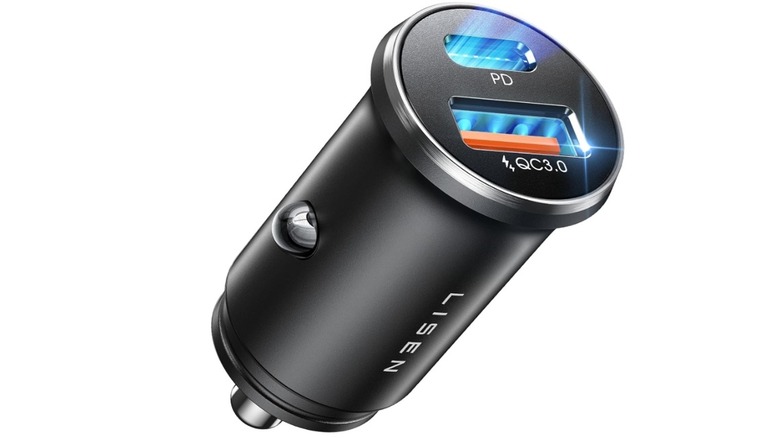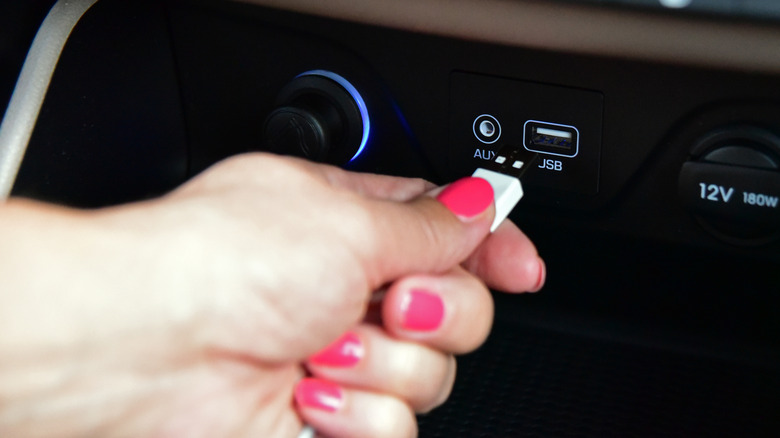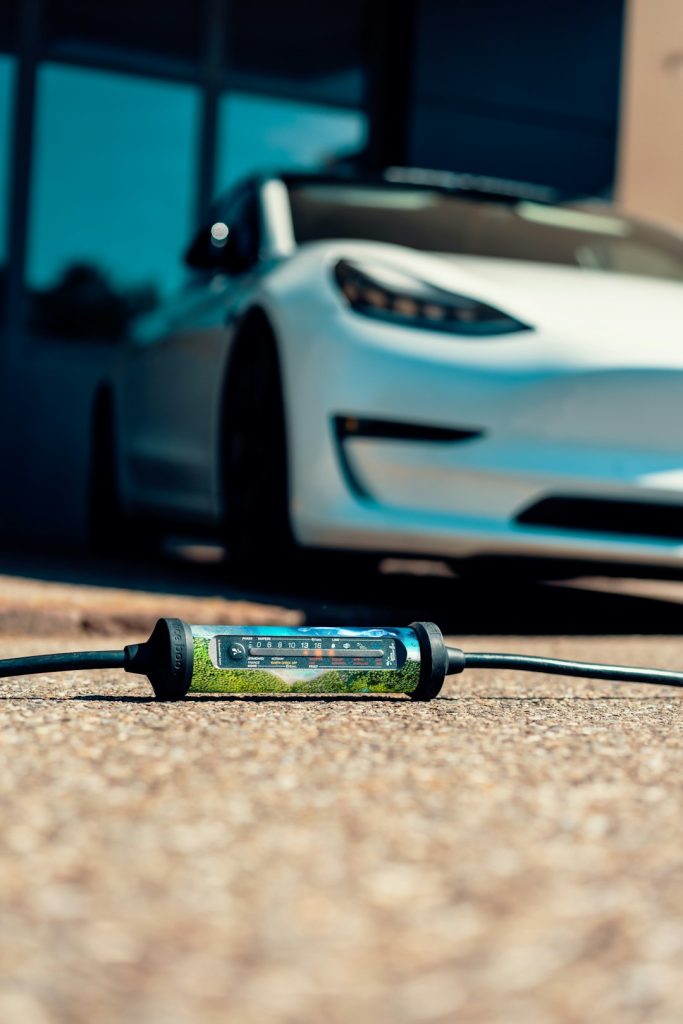Have you ever plugged your phone into your car’s charger and wondered, “Am I draining my car battery?” It’s a common worry, especially when your battery seems weak or your phone needs a quick boost. You might be surprised to learn how much power your phone really uses and whether it’s enough to affect your car’s battery.
Keep reading to find out the truth behind charging your phone in the car—and learn simple tips to protect your battery while staying connected.

Credit: www.slashgear.com
How Phone Charging Works In Cars
Charging your phone in the car might seem straightforward, but understanding how it actually works can help you avoid surprises like a dead battery. Your car’s electrical system is designed to power many devices, including your phone charger, but the way energy moves from the battery to your device depends on several factors. Let’s break down how phone charging operates within your car and what it means for your battery’s health.
Role Of The Car Battery
Your car battery acts as the main energy reservoir when the engine is off. It stores electrical power that starts the engine and runs accessories like lights, radio, and phone chargers. If you plug in your phone without the engine running, the battery provides all the power needed.
Think about those times when you’ve charged your phone while waiting in the car with the engine off. If your phone drains a lot of power, it can slowly sap the battery’s charge, which might leave you unable to start the car later.
Power Flow During Charging
When you connect your phone charger to the car’s power outlet, electricity flows from the battery through the car’s wiring to your device. The charger converts this power into a voltage your phone can use safely. This process draws energy directly from the battery if the engine isn’t running.
Charging speed depends on the charger’s power output and your phone’s battery capacity. Using a high-wattage charger can pull more current, increasing battery drain if the engine is off. Have you noticed your phone charging faster when the engine runs? That’s because the power source changes.
Impact Of Engine Running
Once you start the engine, the alternator takes over as the primary power source. It generates electricity to run the car’s systems and recharge the battery simultaneously. This means your phone draws power from the alternator, not just the battery, reducing the risk of battery drain.
If you’ve ever left your phone charging during a long drive, you likely didn’t worry about your car battery dying. That’s because the engine’s running keeps everything powered efficiently. So, is it safe to charge your phone only when the engine is on? Generally, yes—your car’s electrical system is designed to handle it without harm.
Factors Affecting Battery Drain
Charging your phone in the car might seem harmless, but several factors influence how much it can drain your car’s battery. Understanding these factors helps you make smarter choices about when and how long to charge your device while driving. Let’s break down what really impacts battery drain during phone charging.
Battery Health And Age
Your car battery’s health plays a big role in how it handles extra loads like phone charging. Older batteries or those in poor condition have less capacity to support additional power draws, which means even small tasks like charging a phone can affect them more noticeably.
If your battery is already struggling, charging your phone could push it closer to failure. Have you checked your battery’s condition recently? Keeping tabs on its health can save you from unexpected breakdowns.
Charging Device Power Consumption
Not all chargers draw the same amount of power from your car. Fast chargers or tablets require more energy, increasing the load on your battery compared to a standard phone charger.
Think about the device you’re charging—does it need a high-powered charger? Sometimes, switching to a lower-power charger can reduce strain on your battery without a noticeable difference in charging time.
Duration Of Charging
The length of time your phone stays plugged in also impacts battery drain. Charging for just a few minutes while running errands is unlikely to cause issues, but leaving it charging for hours with the engine off might.
Have you ever left your phone charging overnight with the car off? That’s when the battery drain becomes a real concern, especially if your battery isn’t in top shape.
Can Charging Kill Your Car Battery?
Wondering if charging your phone in the car can actually kill your car battery? It’s a common question, especially when you find your vehicle struggling to start after using your phone charger extensively. Understanding the relationship between your phone charger and car battery helps you avoid unnecessary worries and keeps your car running smoothly.
Scenarios When Drain Happens
Charging your phone in the car usually uses very little power, so it rarely drains the battery. But if your car engine is off and you keep charging your device for hours, the small drain can add up and eventually weaken the battery.
Also, if your car battery is already old or weak, even a small extra load like charging a phone could push it over the edge. Using multiple devices or high-powered chargers while the engine is off increases the risk.
Common Misconceptions
Many people think that plugging in their phone charger instantly drains the car battery. This is false because the alternator charges the battery when the engine runs, balancing the power consumption.
Another myth is that charging multiple devices will kill the battery quickly. In reality, your car’s electrical system is designed to handle several low-power accessories simultaneously.
Real-life Examples
One time, I left my phone charging with the engine off overnight and woke up to a dead battery. It was a clear case of slow drain from the charger combined with an aging battery.
On the other hand, I’ve often charged my phone during long drives with no battery issues. The engine running means the battery stays charged, even with multiple devices connected.
Have you ever experienced a dead car battery after charging your phone? It’s worth checking your battery’s health and how long you charge devices with the engine off.
Preventing Battery Drain While Charging
Charging your phone in the car can be convenient. Still, it might affect the car battery if not done carefully. Preventing battery drain while charging helps avoid unexpected car issues. Simple habits can keep both your phone and car battery safe.
Tips For Safe Charging
- Use the car’s USB port or a quality charger.
- Avoid charging when the engine is off for long periods.
- Turn off unused electronics to reduce battery load.
- Unplug your phone once fully charged to save power.
- Check your car’s manual for charging recommendations.
Using Portable Power Banks
Power banks provide extra charge without using your car battery. Carry a charged power bank for emergencies or long trips. They allow charging anywhere without draining your car. Choose power banks with enough capacity for your phone’s needs.
Regular Battery Maintenance
Keep your car battery clean and terminals tight. Check battery voltage regularly to avoid surprises. Replace old batteries before they fail to start the car. Schedule professional battery tests for accurate health checks. Proper maintenance extends battery life and supports charging safely.
Alternatives To Charging In Car
Charging your phone in the car may use some battery power, but it rarely drains it completely. Portable power banks or solar chargers offer good alternatives for phone charging outside the vehicle. These options keep your phone powered without risking your car’s battery.
Charging your phone in the car might seem convenient, especially on long drives, but did you know it can potentially drain your car battery? If you’re often on the road, it’s essential to explore alternatives to avoid getting stuck with a dead battery. Here are some practical options to consider that won’t compromise your vehicle’s power.Charging At Home
Charging your phone at home is the most straightforward alternative. Make it a habit to plug in your devices overnight. Use a multi-port charger to power multiple gadgets simultaneously, saving time and energy. Consider placing a charging station near your entryway to grab your devices fully charged as you head out. This small adjustment in your routine can ensure you’re always starting the day with a fully powered phone.Solar Chargers
Harness the power of the sun with solar chargers. These eco-friendly gadgets are perfect for outdoor enthusiasts or those who spend ample time in sunny areas. With advancements in technology, many solar chargers are now compact and portable. Imagine hiking or camping and having a free energy source to keep your devices alive. They can be a lifesaver in emergencies or when you’re far from conventional power sources.Power Inverters And Their Use
Power inverters can convert your car’s DC power to AC power, allowing you to use standard chargers. This option is handy for charging larger devices like laptops while on the go. It’s a versatile solution if you frequently travel long distances. However, it’s crucial to ensure your car can handle the inverter’s power output without straining the battery. Always check the inverter’s specifications and match them to your vehicle’s capabilities. By exploring these alternatives, you can keep your phone charged without risking your car battery’s health. What strategies will you adopt to keep your devices juiced up on the road?
Credit: www.slashgear.com

Credit: www.youtube.com
Frequently Asked Questions
Does Charging My Phone Drain My Car Battery?
Charging your phone uses a small amount of power from the car battery. It has minimal impact and won’t drain the battery under normal conditions.
Can Phone Charging Kill A Car Battery?
Phone charging alone cannot kill a healthy car battery. Problems only arise if the battery is already weak or the engine is off for a long time.
How Much Battery Does Phone Charging Consume In A Car?
Phone charging typically uses about 0. 1 to 0. 5 amps. This amount is very low compared to the car battery’s full capacity.
Will Charging Phone Drain Battery If Engine Is Off?
Yes, charging your phone with the engine off slowly drains the battery. It can cause battery drain if done for many hours.
Conclusion
Charging your phone in the car usually uses very little power. It will not drain the car battery quickly. But if the engine is off for a long time, the battery may weaken. To stay safe, avoid charging many devices at once.
Also, check your car battery regularly. A healthy battery keeps your phone charged and your car running. Simple habits help protect both your phone and car battery every day.

